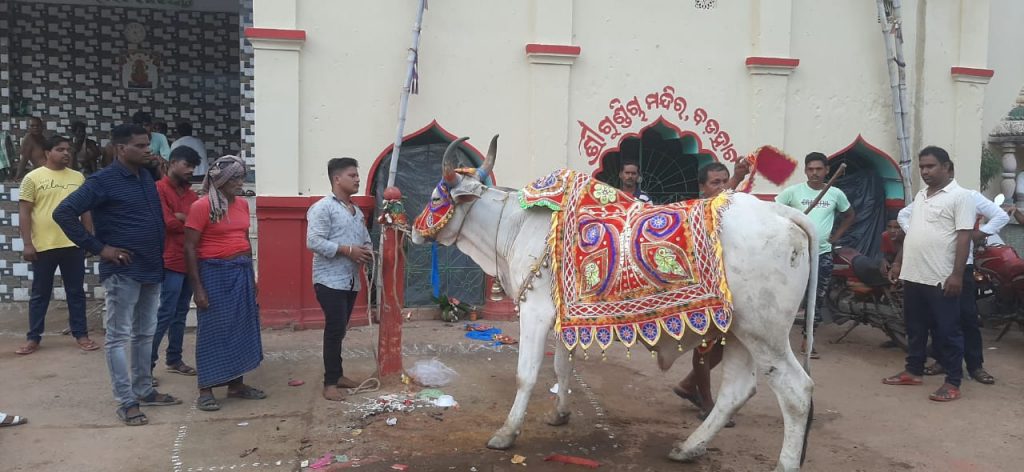Bhuban: Rapid mechanisation of the farm sector has played spoilsport in organisation of festivals that hold social and cultural significance and bind people together as a community. The non-availability of bullocks for the centuries-old bullock festival observed on the occasion of Vijayadashami here in Dhenkanal district is a case in this point.
Reports said that a committee had to spend over Rs 1.5 lakh to buy a bullock. With cultivation shrinking in the state and farmers getting increasingly dependent on modern equipment, bullocks have vanished from the households. This has affected the social and cultural life of people. It has also left its direct impact on the historical bullock festival as people have failed to get healthy bullocks for the festival. Things have come to such a pass that people are either searching for the animal or hiring them on rent from outside or even spending several lakhs to buy a pair of bullocks. The festival was started in Bhuban by the members of Thoria community decades ago. Consent of the presiding deity Maa Banajari is taken before the festival. Revelers from places, near and far, come to Bhuban to witness the festival. In the days before Independence, people would depend on bullock carts to go from one place to another.
The businessmen of Bhuban area also would use bullock carts to go to different areas carrying their commodities. Their long association with bullocks developed a unique bonding. In order to honour these animals instrumental in earning livelihood, the Thoria community started the bullock festival. Goldsmiths and silversmiths later supported it. Bhuban town gets decorated with colourful lights, gates and festoons during the festival. Most of the houses also receive a fresh coat of paint and those who work away also return home as relatives gather in the village. The bullocks decorated with beads, fur and colourful saddles are taken out in a procession that covers three to four kilometre with loud music. It starts in the evening and goes on until next morning.
On this occasion, arisa pitha, a kind of famous sweet cake, is prepared in homes. What makes the event more special is that goddess Durga and Hara-Parvati are worshipped at 12 pandals. And for the last couple of years, the ‘Ravana Podi’ utsav is also being celebrated here, attracting people from various parts of the state and outside. The festival first started with only a pair of bullocks and later 150 more were part of it. However, the number of participating bullocks decreased with the festival becoming very expensive with passage of time.
This year, the festival will see participation of 32 bullocks. Earlier, the dress rehearsal for festival used to begin from the day of Mahalaya. To tame the bullocks, the animals are taken on a round of the Bhuban town amid bursting of crackers and playing of musical instruments. This year the practice session started from Ganesh puja as the festival could not be held for last two years due to Covid pandemic. Some organisers have their own bullocks while other are hiring from outside at prices anything ranging between Rs 5,000 to Rs 10,000.
However, what is surprising is that a committee of Maudamani Mahalkshmi Yuvak Sangha at Badahaat has purchased a bullock for Rs 1.5 lakh. Debendra Kumar Sahoo, president of the committee said that these days healthy bullocks are not available and several lakhs of rupees are being spent right from the practice session till the culmination of the final festival and the immersion ceremony. He said that despite spending several lakhs in buying bullocks, they are having a sense of satisfaction for upholding the age-old tradition. Sibananda Sahu, president of Bania Sahi Dussehra Committee said many committees are forced to hire a bullock by spending around Rs 10,000.
Recently, some committee members entered into an agreement with some farmers by paying half the price of a bullock. The farmers will rear the animals throughout the year and would only lend those during the festival. To keep the relations intact with the farmers, the committee members visit their houses during the festival and felicitate them with new clothes and sweets. This helps in strengthening amity and brotherhood in the region, he observed.
